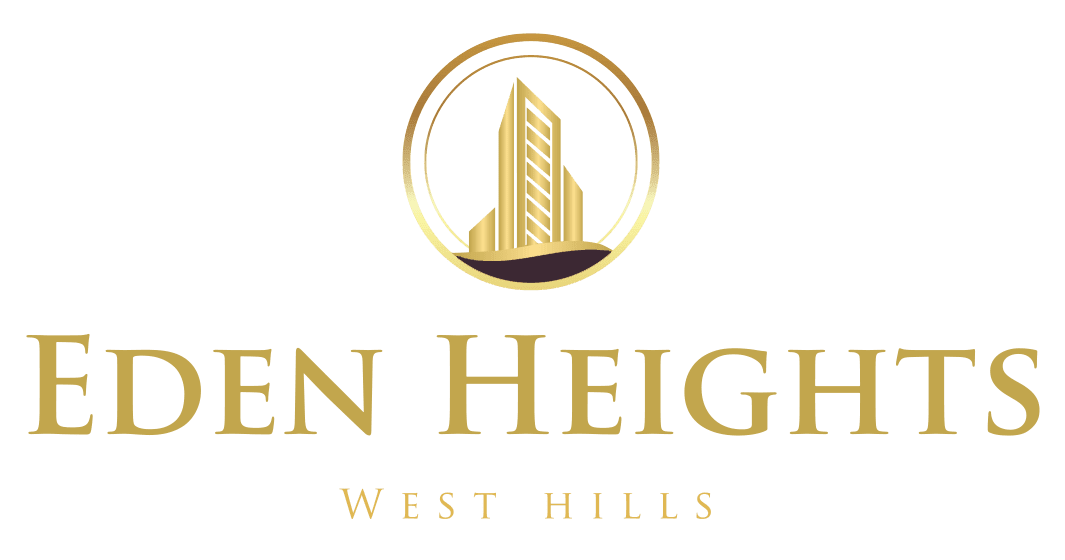Living in Ghana presents homebuyers with a choice between high-end gated communities or more traditional open neighbourhoods. While traditional communities have their appeal, newer luxury developments offer various amenities and benefits. When selecting a home and neighbourhood in Ghana, it is worth comparing the pros and cons of gated communities versus traditional areas.
What is a Gated Community?
A gated community is a residential development or neighbourhood that has strict access control with physical barriers like walls, fences, or gates. Residents of gated communities typically need permission and possibly credentials to enter. The intention behind gated communities is to provide added security and a private environment with shared amenities exclusively for residents.
Gated communities in Ghana are often high-end developments targeted at wealthy homebuyers. Some of the key features of luxury gated communities in Ghana include:
- Restricted access – Entry is controlled through gates, walls, fences or security personnel. This keeps the area private.
- Comprehensive amenities – Luxury gated communities invest in amenities like pools, gyms, clubhouses, and sports facilities available only to residents.
- Managed services – Full- or part-time staff manage maintenance, security, leisure activities and other services.
- High-end homes – Properties constructed within gated communities tend to be upscale houses, townhouses, and apartments.
- Communal feel – Their exclusivity fosters a community spirit amongst residents.
Pros of Living in a Gated Community
Gated communities aim to offer enhanced facilities, security, and services for homeowners—making them appealing to many buyers. Some specific advantages include:
Improved Security
- Restricted access and perimeter walls or fencing act as extra security layers.
- Manned gates and security patrols actively monitor the area.
- Alarm systems and CCTV add further protection.
- Secure parking areas prevent vehicle crime.
Quality Facilities and Amenities
- Features like pools, gyms, and sports courts are exclusively for residents.
- High standards of construction and maintenance.
- Attractive landscaping and outdoor areas.
- Potentially includes retail, restaurants and other services onsite.
Convenience
- Gates allow quick vehicle access to main roads from the neighbourhood.
- Reduced traffic and noise in the gated area.
- Provide services like garbage collection.
- Some include supermarkets, eateries and other shops onsite.
Community Spirit
- Residents share common interests and demographics.
- Events and activities bring neighbours together.
- Governance and administration create civic involvement.
- Children have playmates and security to play outside.
Prestige
- Gated communities are seen as prestigious addresses.
- Surrounding property values can increase.
- High standards of planning, construction and maintenance.
Investment Potential
- Exclusivity and facilities attract high rental prices.
- Units may appreciate in value faster than regular properties.
Cons of Living in a Gated Community
However, gated communities also come with some drawbacks to consider:
Cost
- Purchase prices are higher than equivalent open properties.
- Maintenance fees and homeowners association (HOA) dues.
- Expect to pay for facilities and amenities.
Access Limitations
- Getting in and out requires checking in at the gates.
- Visitors need pre-approval to enter.
- Roads link mainly within the development rather than out.
Loss of Privacy
- Close proximity to neighbours.
- Shared walls in condo/apartment units.
- Activities and noise from common facilities.
Restrictions
- Community rules and covenants from HOAs.
- Limitations on modifications to your unit and external areas.
- Required standards for maintenance and aesthetics.
Insularity
- Can feel disconnected from rest of neighbourhood/community.
- Less diversity among residents.
Reliance on Developers
- If developer folds, residents must assume maintenance.
- Developers make important early decisions.
Safety Concerns
- Gated access points could hinder emergency services.
- Concentrating affluence may attract criminals.
Comparing Gated Communities to Traditional Neighborhoods
Homebuyers trying to decide between gated communities and traditional neighbourhoods should weigh the pros and cons of each.
Security
Traditional neighbourhoods typically have more access points and traffic making security measures like gates and patrols impossible. The walls, restricted entries and security forces of a gated community create additional peace of mind. However, critics argue criminals may specifically target the affluence concentrated inside gates.
Amenities
Facilities like shared pools, gyms and clubhouses are rare in open neighbourhoods. Gated communities allow developers to provide luxury amenities reserved for residents. But they come at an extra cost through homeowners fees.
Maintenance
Developers and HOAs carefully maintain gated communities for aesthetics and property values. Open neighbourhoods rely solely on residents to upkeep their homes and public areas. However, gated community rules governing maintenance may feel restrictive to some owners.
Community
Gated developments foster strong communities with shared interests. But some find traditional open neighbourhoods more diverse and inclusive overall. Facilities inside gates promote interaction but can also create noise issues with close neighbours.
Property Values
Buyers often pay a premium for gated community homes expecting long-term appreciation. But location, housing supply and economic trends influence values in both open and closed neighbourhoods. However, quality amenities and services may bolster prices inside gates.
Location Convenience
Gated communities allow quick access to arterial roads. But most traditional neighborhoods have more integrated road connections making overall travel easier. Gates can also hamper public services like police and ambulance response.
Governance
Homeowners associations govern gated communities requiring participation and fees. Traditional neighbourhoods have less formal governance structures centred on the municipality. Gated HOAs provide services but also impose restrictions on the use of the property.
Feasibility
Developing a new gated community requires large initial capital investment in land, construction and infrastructure. Gates and amenities make them unfeasible in some locations. Traditional open developments are easier to construct incrementally over time.
Key Factors in Deciding Between Gated Communities Versus Traditional Neighborhoods
- Budget – Can you afford the purchase prices and ongoing fees of a gated community?
- Security needs – Do gates and walls provide worthwhile added protection?
- Desired amenities – Are facilities like pools worth the costs?
- Maintenance expectations – Do you want to maintain your home exterior and yard yourself?
- Community preferences – Is a diverse open neighbourhood or private community environment better for your family?
- Access needs – Do you need integration with surrounding roads?
- Future plans – Will possible resale value and demand growth matter down the line?
- Personal priorities – Do upfront costs justify long-term benefits for your priorities?
Examples of High-End Gated Communities in Ghana
Some prominent high-end gated community developments in Ghana include:
Eden Heights
Located in West Accra, Eden Heights offers luxury apartments and townhouses with amenities like outdoor pools, sports courts, playgrounds and a clubhouse. Homes have upscale interior designs with spacious balconies and terraces overlooking well-landscaped grounds.
Purple Tree
Purple Tree is a luxury gated community in Spintex, Accra. Home options include fully detached houses, semi-detached duplexes and apartments. Facilities encompass a clubhouse, gym, pool, tennis court and playground. The development company also manages estate maintenance and security.
Roman Ridge
Roman Ridge offers exclusive apartments, duplexes and detached homes in Roman Ridge, Accra. Gated security and perimeter patrols protect residents 24/7. The estates house a private clubhouse, swimming pool, gym and business centre. Roman Ridge offers premium in-town living away from city noise and bustle.
Teachers Ivydeot
Located in North Legon, Accra, Teachers Ivydeot consists of detached houses in a gated community with security personnel monitoring controlled access points. Homeowners have access to a clubhouse with an outdoor pool, gym, and playground. Quarterly maintenance fees go towards the upkeep of facilities and infrastructure.
Regimanuel Gray
Regimanuel Gray is an upscale gated development in East Legon, Accra. Options include fully detached family homes and semi-detached duplex townhouses within a walled and gated compound. Facilities include a swimming pool, clubhouse, and fitness centre. Homes reflect modern tropical design with open interior spaces and balconies.
Conclusion
Ghana’s high-end gated communities aim to provide added luxury, security and convenience compared to traditional open neighbourhoods. While these benefits appeal to many homebuyers, potential downsides like restrictions and costs exist too. Location, amenities, community environment, and long-term goals should drive any decision between gated versus non-gated living in Ghana. Developments like Eden Heights offer a compelling blend of exclusivity, facilities and finishes for those seeking a premier gated community residence.
FAQs About Living in Gated Communities in Ghana
What are the key features of luxury gated communities in Ghana?
Luxury gated communities in Ghana typically have restricted access, comprehensive amenities like pools and gyms, managed services, high-end homes, a communal feel amongst residents, and prestige.
What are the main advantages of living in a gated community?
The main advantages include improved security, high-quality facilities and amenities, the convenience of services like garbage collection, community spirit through shared interests, the prestige of the address, and strong investment potential.
What are the biggest disadvantages or tradeoffs with gated communities?
Major downsides can include higher costs, access restrictions, loss of privacy, limits on property modifications, insularity from the larger community, reliance on developers, and impediments to emergency services.
How does security compare between gated developments versus traditional neighbourhoods?
Gated communities have more security layers like perimeter walls and gates, security patrols, and controlled access points. But some argue traditional neighbourhoods avoid concentrating and advertising affluence.
Do amenities in gated communities justify their costs?
The additional amenities come at a cost premium. Residents must determine whether the benefits warrant added fees and higher home prices compared to living in a traditional neighbourhood.

